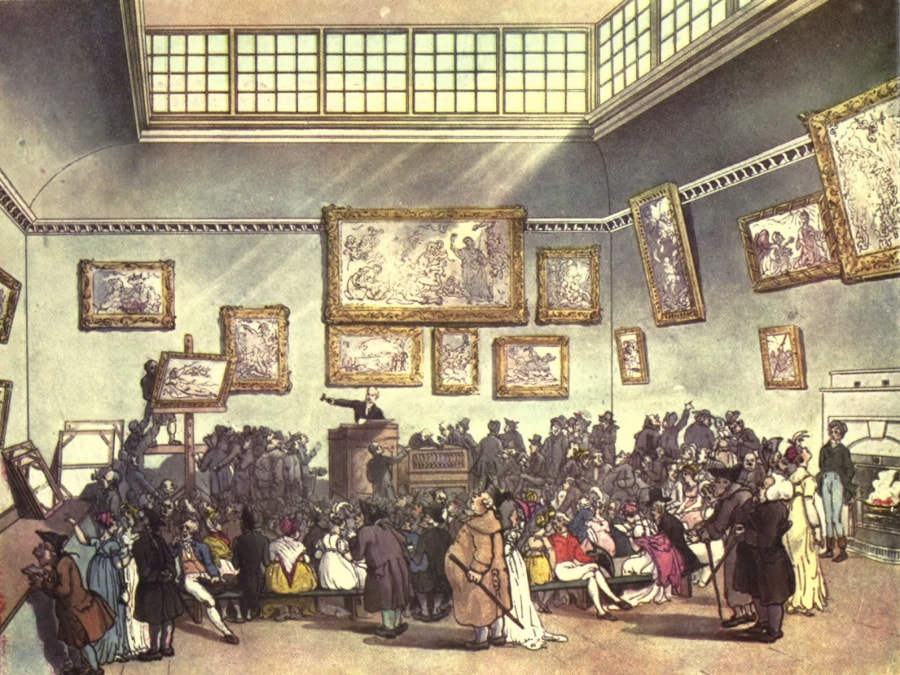|
Auctions have been a means of selling for hundreds of years. They continue to be viable today and the internet has led to profound changes in the industry. For sellers, the advantage of online auctions is the ability to reach potential buyers worldwide. For buyers, the advantage is access to items on which they would never have had the opportunity to bid. At the same time, the sheer number of auctions and the volume of "stuff" constantly coming to market has helped to lower price points all across the board.
So, if you are wondering if an auction is a good way to go or not, the answer to some extent is, "it depends". One big plus is that it can be a simple solution, particularly if you are in a "gotta go" situation. You sign the contract, the auction house picks up your items, and a few months later you get a check. The downside is that you often have no control over what your items might bring. For high-end items this is perhaps less of a worry since great pieces almost always bring good hammer prices. Lower-end items might struggle though or even fail to sell completely, though, so be pragmatic and have an idea of what you can live with before you consign. If you do decide to go the auction route, there are a number of things to keep in mind as you navigate the process. In no particular order, I have presented some of these in the following paragraphs. First, if you are looking to sell at auction, consider the sophistication of an auction house's online selling abilities when choosing a firm. The internet, as noted above, as been a complete game changer when it comes to the auction industry. Everyone from Sotheby's down to the mom-and-pop auctioneers who set up in your front yard are on the web in one form or another. People have become very comfortable with online bidding and thus the auction houses are continuing to direct more and more of their efforts in that direction. One factor that will go a long way in determining which firm you use is the nature of the items you wish to sell. High-end firms often have rough consignment valuation cutoffs north of $10,000, although exceptions are sometimes made. Below those firms are regional auction houses that will do well with items in the $500-10,000 range. For items under a $100, a local firm may be a good bet or even taking a DYI approach and selling items yourself on platforms such as eBay. Once you have narrowed your focus, you will want to carefully read the terms of the contract. The commission rate is obviously a major point but also look for nickel-and-dime fees such as insurance, photography, buy-in fees (should your pieces not sell), etc. Another thing to look for is when you can expect to get paid. Most auction houses will pay between 30 and 45 days and their contract should explicitly say this. Also do your homework but simply asking around and seeing what experiences other people have had with the company. A final thing to consider is what the auction house is known for. If you have general items, that may not factor into the equation. If you have something specific, though, such as a California impressionist work, then look to get the item to a California or western auction house. Online bidding has made this less critical than it once was but I still feel it makes sense to choose a firm that 1) is in the right geographical area if that pertains to your item(s) and 2) is known for what your looking to sell. Many auction houses specialize in things like old toys, illustration art, etc. and you will want to consider that when making your choice of auctioneers. This may seem like a daunting process but it really isn't that hard... it just takes some time and a little effort. And trust me, your financial outcome will probably benefit greatly from the efforts that you do make. In the meantime, happy selling! |
AuthorBryan H. Roberts is a professional appraiser in Sarasota, FL. He is a member of the Florida State Guardianship Association and currently serves on the board of the local FSGA chapter. He is a past president of the Sarasota County Aging Network, a non-profit that provides grants to other non-profits benefiting seniors in need and is also a board member of PEL, an area non-profit whose resale store profits support programs and scholarships for at-risk and disadvantaged youth. He is certified in the latest Uniform Standards of Appraisal Practice (USPAP) Equivalent Archives
May 2024
Categories |


 RSS Feed
RSS Feed